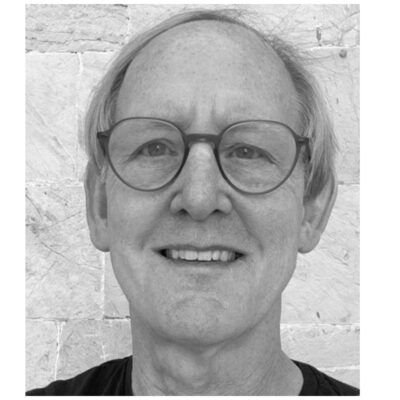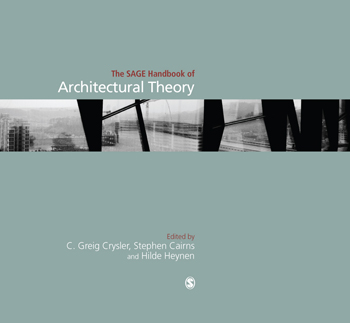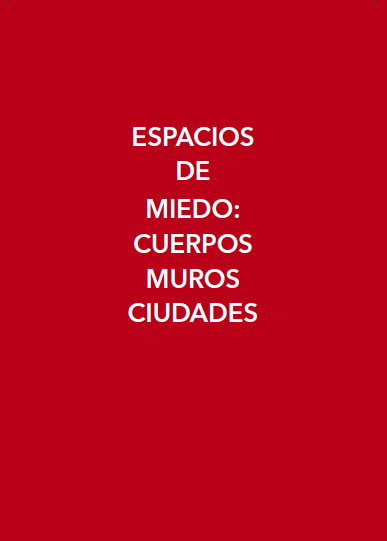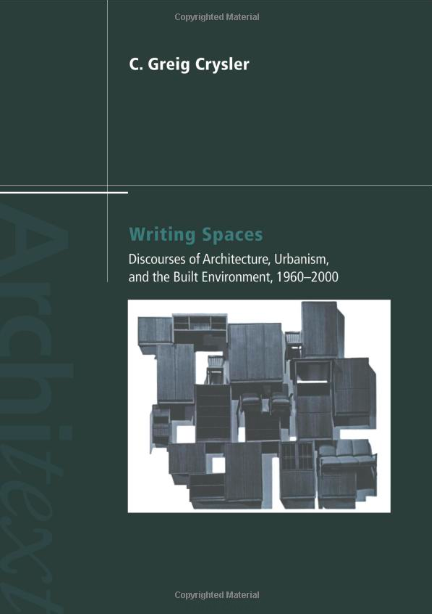
C. Greig Crysler
BIOGRAPHY
C. Greig Crysler completed his professional training in architecture at the University of Waterloo, Canada and the Architectural Association School of Architecture in London, UK. He teaches courses in the History, Theory and Society of Architecture. Through his leadership as Arcus Chair (2012–2022) and his role as program director of CED’s Arcus Endowment, Crysler has translated his commitment to equity and social justice in design education into frameworks for student and faculty engagement, public discussion and alternative forms of pedagogy related to issues such as dispossession, queer theory, and activism. In recognition of his efforts, he received the Chancellor’s Award for Advancing Institutional Excellence and Equity in 2017.
Crysler’s research focuses on two areas of investigation. The first examines the institutions and practices of architectural theory in the context of the changing social, economic and political forces of the global present. Crysler’s book Writing Spaces: Discourses of Architecture, Urbanism and the Built Environment (Routledge, 2003) examines emerging debates around globalization and transnational cultural processes, as they emerged in a range of journals between 1960 and 2000, and considers their implications for architectural theory. These arguments are developed further in the interdisciplinary and cross-cultural Handbook of Architectural Theory (Sage, 2012), which he co-edited with Hilde Heynen and Stephen Cairns.
A second area of area research operates at the intersection of space, power, and identity through case studies of architecture and cities. Recent publications include his book Spaces of Fear: Bodies, Walls, Cities (co-edited with Maria Moreno Carranco, published in 2019 by Publicaciones UACHE of the Universidad Autónoma Metropolitana, in Mexico City; English language edition, 2021), which examines the relationship between embodiment, affect and the aesthetics of fear in North American cities. A second collection, also co-edited with Moreno Carranco, entitled Mexico City: Materiality, Performance and Power, was developed as part of a year-long teaching program led by Crysler through UC Berkeley’s Global Urban Humanities Initiative. A sequence of material conditions (earth, water, concrete, pigment, blood, waste and rubble) provides the framework for situated histories of Mexico City.
He is also co-author, with cultural geographer Shiloh Krupar, of the forthcoming Territories of Exaction: Austerity, Bias, and Dross. The book uses an innovative combination of text and original images to examine how historical practices of debt, racial capitalism, and waste relations in the colonial extra-territories of the U.S. continue today, through case studies of graduated sovereignty in San Juan, Puerto Rico; Jefferson County, Alabama; and Camden, New Jersey.
COURSES TAUGHT
Arch 139/239: Spatial Politics and the Global City: Design, Dispossession and Dissent
Arch 139/239: Architecture, Ethics and Activism
Arch 281: Introduction to Methods of Architectural History, Theory and Society
Arch 139/239: Mexico City: Materiality/Performance/Power
Arch 139/239: Design and Difference: Spaces of Queer Theory
Arch 130: Introduction to Design Theory and Criticism
Arch 139/239: Mexico City: Histories/Spaces/Cultures
Publications
C. Greig Crysler et al., "Introduction," and "Strange Dust: The Matter of Fear at Ground Zero," in C. Greig Crysler and Maria Moreno Carranco, Espacios de Medio: Cuerpos. Muros, Ciudades/Spaces of Fear: Bodies, Walls, Cities [Mexico City: UAM Press, 2019; English language edition, 2021], pp. 15-46 and 89-140
"The Paradoxes of Design Activism. Part Three: Exchange," Field: A Journal of Socially-Engaged Criticism [forthcoming, Fall 2023]
"The Paradoxes of Design Activism. Part Two: Scale," Field: A Journal of Socially-Engaged Criticism [Spring, 2019]: http://field-journal.com/issue-10/the-paradoxes-of-design-activism-expertise-scale-and-exchange-part-two-scale
"The Paradoxes of Design Activism. Part One: Expertise," Field: A Journal of Socially-Engaged Criticism [Spring, 2018]: http://field-journal.com/issue-2/crysler
C. Greig Crysler and Shiloh Krupar, "Waste Time: Excess Potential in Academic Production," in Reversing the Cult of Speed in Higher Education. The Slow Movement in the Arts and Humanities (New York and London: Routledge, 2019), pp. 141-55
"Groundwork: (De)Touring Treasure Island’s Toxic History," in Lynne Horiuchi and Tanu Sankalia (eds.) Urban Reinventions: San Francisco’s Treasure Island (University of Hawaii Press, 2017), pp.175-86
C. Greig Crysler, in Crysler et al., Sage Handbook of Architectural Theory (London and Thousand Oaks, CA: Sage Publications, 2012)
"Introduction: Architectural Theory in an Expanded Field" co-authored with Stephen Cairns and Hilde Heynen, Sage Handbook of Architectural Theory (London and Thousand Oaks, CA: Sage Publications, 2012), pp. 1-22
"Time’s Arrows: Spaces of the Past," Sage Handbook of Architectural Theory (London and Thousand Oaks, CA: Sage Publications, 2012), pp. 325-339
Writing Spaces: Discourses of Architecture, Urbanism and the Built Environment, 1960-2000 (New York and London: Routledge 2003)
"Between the Cloud and the Chasm: Architectural Journals, Waste Regimes, and Economies of Attention," in Daniel Maudlin and Marcel Vellinga (eds), Consuming Architecture: On the Occupation, Appropriation and Interpretation of Buildings (London and New York: Routledge 2014), pp. 276-294
"Comparative Alterities: Native Encounters and the National Museum," in Madhuri Desai and Mina Rajagopalan (eds), Colonial Frames/Nationalist Histories (Farnham, UK: Ashgate Press, 2012), pp. 105-36
C. Greig Crysler and Shiloh Krupar, Territories of Exaction: Austerity, Bias, Dross. co-authored book manuscript [in preparation, anticipated publication date Fall 2023]
C. Greig Crysler and Maria Moreno Carranco (eds), Mexico City: Materiality/Performance/Power (in preparation, anticipated publication date Fall, 2023)


